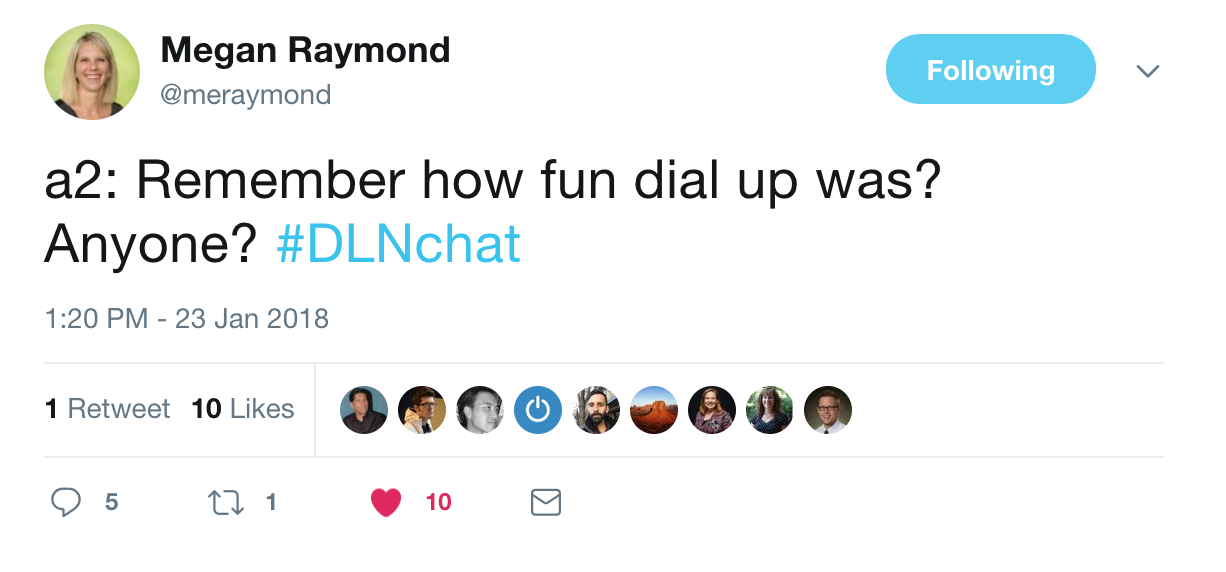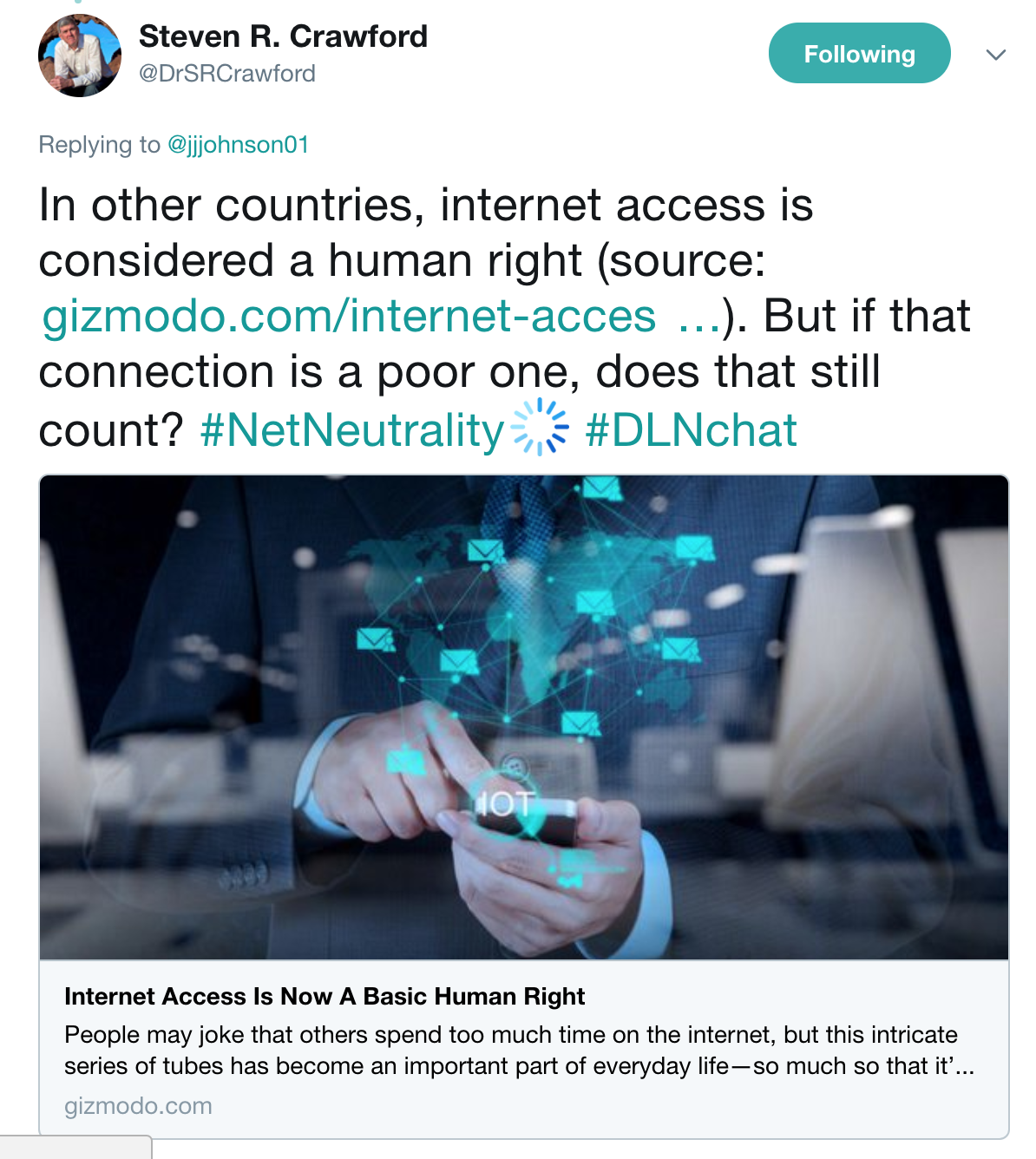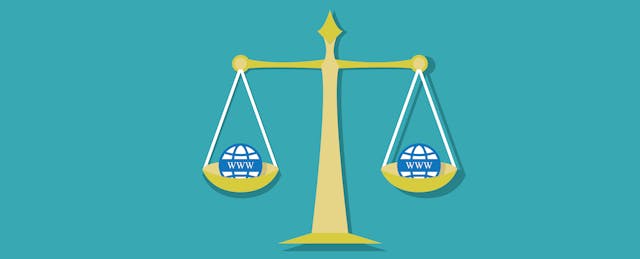Is the FCC’s decision to end net neutrality the beginning of a new era of net discrimination? That was the question underlying much of our #DLNchat on Tuesday, January 23 when we asked How Will Net Neutrality Changes Affect Higher Ed? There was wide agreement that upcoming changes to net neutrality open the doors to potential discrimination of internet access. The consensus was that those who are most vulnerable are students, particularly those who may already have limited access to higher education. Bryan Alexander put it well, “As income inequality continues to rise, and as education plays a powerful role in helping inequality grow, ending net neutrality just accelerates things.”

Many were particularly concerned for rural students. Protections for charging more for internet use in rural areas have been removed (and the FCC is currently attempting to recategorize internet access from a utility to a service which could compound the issue). Students in rural areas could pay more to participate in online courses and programs as well as for access to resources they use to support their studies. But Cali Morrison reminded the chat, it’s not just rural students whose access we should be concerned about. Students in urban areas may face increased prices for educational access as well. While some institutions will be able to pay more to maintain high-level access on campus, others won’t. And for students and programs that are fully online, the institution’s ability to pay more is moot.
So which institutions should be most concerned? Most agreed that larger institutions with more resources would likely find the shift less challenging than smaller institutions, but that’s not to say the challenges wouldn’t be felt everywhere. Professor Mike Greene, Bill Weber and others raised questions about how increased cost might affect decisions around course content. Research was also of concern. Net neutrality changes in speed could impede access to vast amounts of data that researchers depend on for their work. Darin Gray, Chuck Hayward and others pointed out how this could also lead to research bias if only those with the most resources will be able to complete academic inquiries.
Paul Wilson advised that higher education institutions “consider how for-profit can assist in meeting their needs,” but many chatters were skeptical that vendor partnerships would be able to help. As costs rise for companies providing content, the fear is that the cost will get passed along to the institutions and students. So what’s a university to do? A lot of the #DLNchat community seemed to fear we were heading back to speeds unseen since the dial-up days.


But others were a bit more hopeful. JJ Johnson, among others, touted the importance libraries will continue to play in supporting equity of access to information, now maybe more than ever. He and others also seemed confident that states will start to take up the issue, as has recently happened in Montana. Perhaps, some posited, access issues could inspire real change in our cultural attitudes toward net neutrality. Steven Crawford pointed out that other countries recognize internet access as a human right; Bethany Bovard encouraged universities to do the same.
For other opinions on how net neutrality changes may, or may not, affect higher education read Will Net Neutrality Reversal Hurt Digital Learning? As Vote Approaches, Mixed Opinions.

Join the Digital Learning Network to stay up to date on all events and the latest news for highered digital learning leaders! At our next #DLNchat, we’ll discuss What is Blockchain? And Can it Support Student Success? Add it your Google calendar for Tuesday, February 13 at 1pm PT/ 4pm ET.#DLNchat is co-hosted by the Online Learning Consortium, WCET and Tyton Partners.


